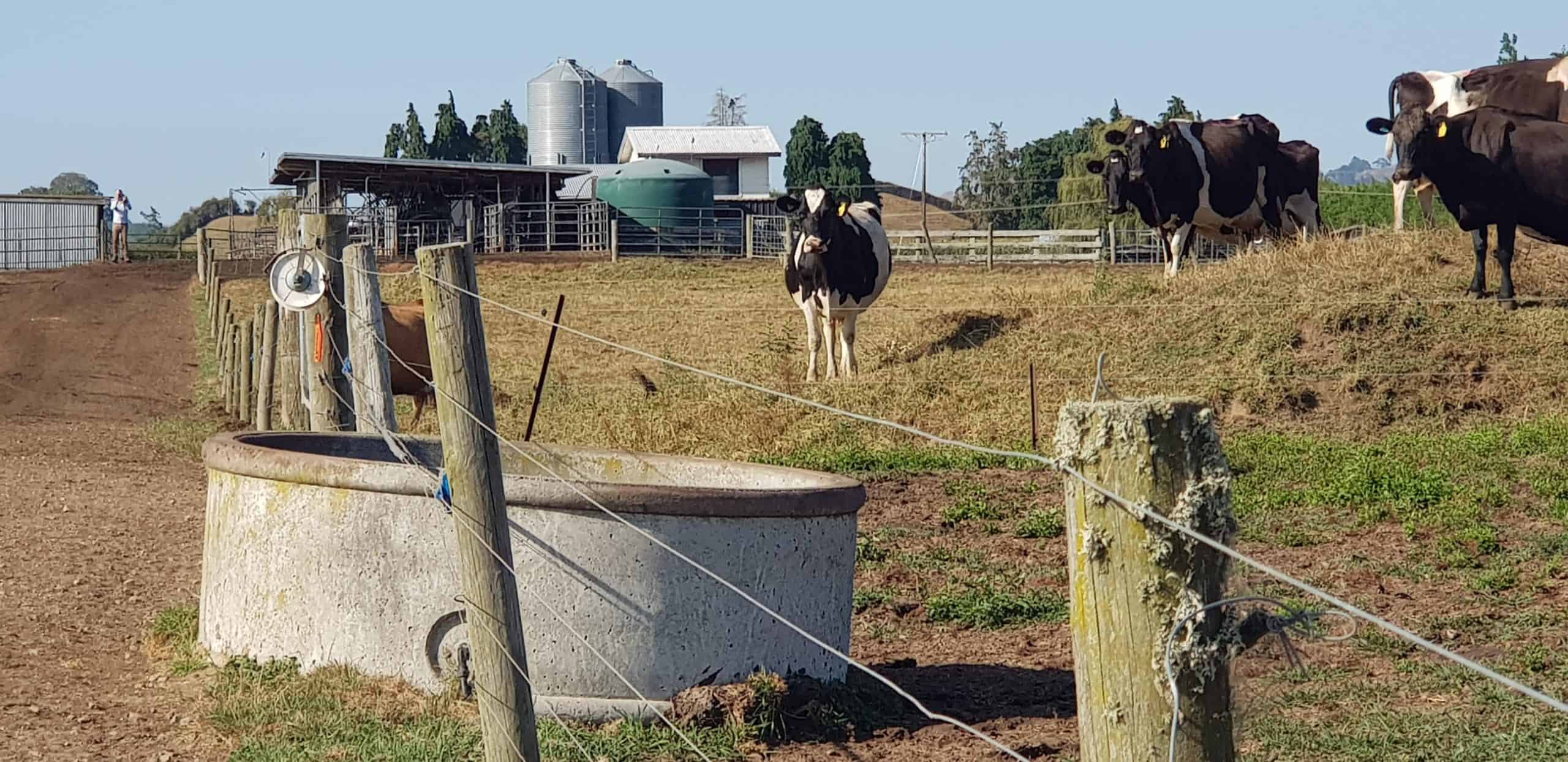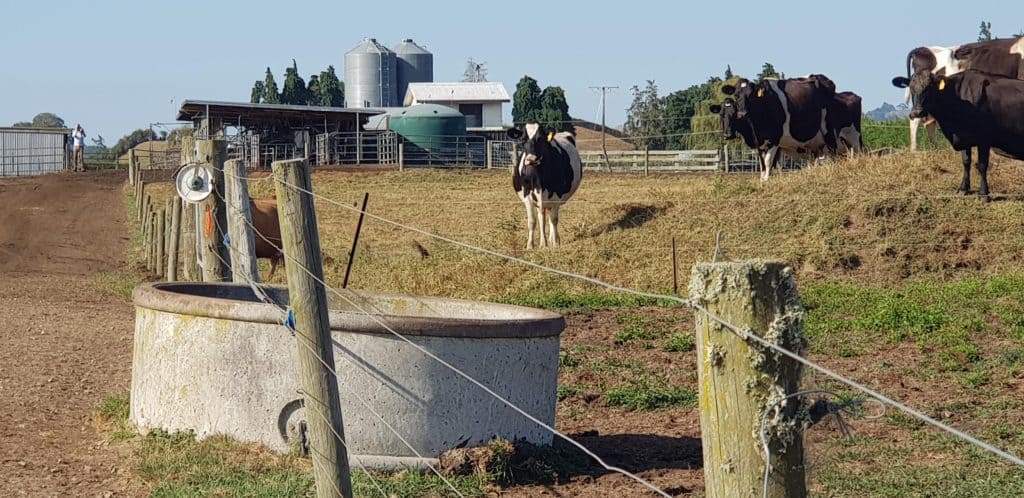News

Farmers use a range of tools to help their animals keep cool in summer
Wednesday 12 February 2020
Trying to stay cool is something many of us struggle with, and animals need to cool off as well. While we can head to the beach or turn the air-conditioning up, keeping cows cool is something that needs careful thought and planning – particularly with climate variations which can mean longer, hotter summers.
Farmers have a range of strategies that they use to manage their animals over summer months to reduce heat stress. Some are relatively straightforward, while others involve a change of practice.
Northland’s Federated Farmers Dairy Chair, Matt Long, says ideally, there will be trees to provide shade for animals in summer, but even if there are no trees, there are a number of other techniques farmers can use to help to keep their cows cool.

“Walking to and from the milking shed in the heat can increase the stress for cows, so keeping them in paddocks closer to the shed reduces the distance they have to travel. Also, changing the milking time to early morning or later in the afternoon when its cooler will help to reduce heat stress.”
He says, “We used to alternate our milking practice, only milking once a day during the summer months. It meant our cows were milked early in the morning when it’s cooler and they could relax and conserve their energy the rest of the day. We have since adopted the practice of once a day milking all year round.”
South Waikato farmer Mark Perrott says another way the herd can cool down is by drinking more water, so making water available on the way to and from the milking shed helps. He says once the cows are in the yard there are other ways to make them more comfortable.
“I installed some sprinklers in the yard, a relatively inexpensive but effective tool. The sprinklers had an instant effect. The cows were able to cool off while they waited to be milked and were happier and more relaxed. This had a flow on effect, making milking faster and more enjoyable for my team as well.”
DairyNZ animal care team leader, Helen Thoday, says dairy cows often respond to heat stress by eating less which impacts on their milk production so adjusting the farm system in hot weather has real benefits for animal wellbeing and for the farmers’ bottom line.
Contacts:
Helen Thoday, DairyNZ Animal Care Team Leader – 027 704 5516
Suzanne Takiwa, Dairy Tomorrow Communications – 021 619 681
The dairy tomorrow strategy is a partnership of key agencies and dairy companies working together towards a shared vision for a sustainable and profitable future for the dairy sector. Animal care is one of the core commitments and programmes of work in the strategy.















